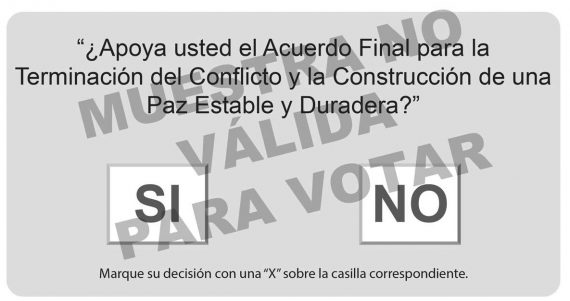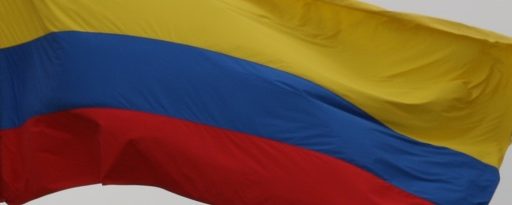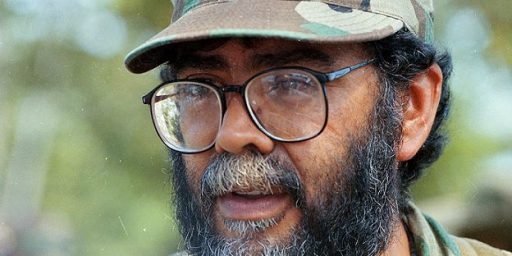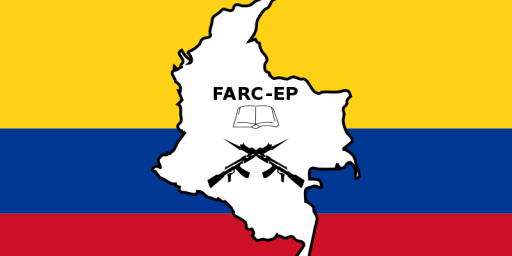Colombia’s Vote for Peace
Today Colombians got to the polls to vote in a plebiscite on the FARC peace accord.
 Having signed a final peace accord with the FARC guerrillas earlier this week (after a multi-year process of negotiations), the voters in Colombia are being asked the following question this morning:
Having signed a final peace accord with the FARC guerrillas earlier this week (after a multi-year process of negotiations), the voters in Colombia are being asked the following question this morning:
“Do you support the final accord to end the conflict and to build a stable and lasting peace?”
While the “Sí” vote is expected to win, there is substantial pro-“No” coalition led by former President Álvaro Uribe. Those who oppose the accord see the process as promoting impunity and injustice in the face of the crimes committed by the FARC over the decades.
It should be noted that the Colombian Constitutional Court ruled that at least 13% of eligible voters had to approve of the accords for the plebiscite to be valid. This translates roughly into 4.5 million votes (specifically, the Colombia news weekly, Semana, puts the “magic number” at 4,536,993). This is relevant only insofar as Colombia has a history of low voter turnout.
For a backgrounder on the conflict with the FARC see my piece from last month in Origins: Colombia: On the Brink of Peace with the FARC? If you can read Spanish I would also recommend the web site of the High Commission for Peace. Additionally, WaPo provides 5 stories to read as Colombia votes on the FARC peace deal.
Peace deals of this nature are always difficult and perfect justice is impossible. However, as one who has studies Colombia for roughly a quarter century, having lived there for a time, I am optimistic that this deal will help move Colombia further down the path to peace. It will certainly not solve all of Colombia’s problems, but it represents numerous steps in the right direction.
A key issue that I will be watching will be the integration of the FARC into political life and electoral/party politics.
Hopefully we will next see a peace deal with the ELN, and the guerrilla wars will finally be over in Colombia. This will not solve ongoing criminal violence, but it will represent important progress.





All the best to Columbia. Thanks for continuing to cover this, Steven.
Steven:
Have you ever come across with an explanation for why Americans are so indifferent to South America? My vague guess is that it’s about the Spanish language and that gringos tend to toss everyone south of the Rio Grande into the same Mexican basket. As for our ignorance about Mexico, I think that’s a national guilty conscience. Still, strange.
What’s the position of the drug cartels on this issue? There was a time when the Escobar cartel had revenues of $20-25 billion while the official GDP of the country was $100 billion. They certainly are significant.
With all the horrible news coming from Venezuela it’s wonderful to have something to cheer about on the southern shore of the Caribbean. As said above, thanks for keeping this in front of us.
Well, so much for something to cheer about. Voters rejected the treaty.
@michael reynolds: Indeed. I see you got that sad word an hour ago. The WaPo attributes the narrow NO vote to long-held animosity due to atrocities and the light sentences (community service clearing land mines — which doesn’t sound like ‘club fed’ to me) for FARC veterans convicted in special courts.
Where have you gone Nelson Mandela?
@JohnMcC:
I’m starting to have my doubts about this whole democracy thing.
@JohnMcC: heard Hurricane Matthew had some blame. There was heavy rainfall in areas where a strong Si showing was expected.
@michael reynolds: Like I just said on Facebook: First Brexit, now the FARC peace accords. Take note, world leaders: reducing complex processes and decisions down to a simply “yes or no” vote is not a good idea.
To build on that: referenda really are terrible policy-making tools.
This actually makes me sad, and that is not my normal reaction to political outcomes. It is sincerely a shame and I honestly do not know what comes next..
@michael reynolds:
I really don’t understand this, although I’ve certainly lived it. I crossed the Atlantic a dozen times before ever setting foot in South America, but once I did it was like suddenly discovering a four star restaurant across your back alley. After work sent me to a few SA and LA countries, my wife and I have prioritized South American travel for our tourism. We’re spending a week in the Salta area of Argentina this November, before spending a few days in Buenos Aires and seeing a Boca Juniors match. We’re expecting the time of our lives.
@Slugger: The cartels are not what they were and really do not exists as they did in the 1980s and 1990s. Smaller groups exist but for massive drug organizations of the type you are describing (although still not Escobar level) you would need to look to Mexico.
@Neil Hudelson: It is a lovely region, to be sure.
@JohnMcC: There are a lot of people who have been directly affected by the violence and, understandably, want justice. The problem becomes (and has been) that each cycle of attempts at justice (often vengeance, to be honest) simply perpetuates the cycle, creates more victims, and therefore more people seeking justice…
@Steven L. Taylor: I had a roughly drawn comparison to the era of Civil War & Reconstruction in my mind as I read that news report. Made the ‘nay’ vote sort of comprehensible although still tragic.
Do you have any thoughts on the future of Columbia?
@JohnMcC: Thoughts will be forthcoming, I am sure.